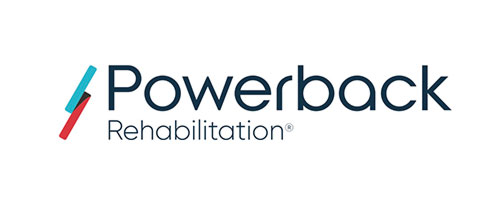Articles
The Journal on Active Aging brings articles of value to professionals dedicated to older-adult quality of life. Content sweeps across the active-aging landscape to focus on education and practice. Find articles of interest by searching the article archives in three ways: Enter a keyword in the articles search bar; click on search by topic; or type a keyword or phrase in the general search bar at the top of the page.
Topic- Assessment

Penn State Center for Healthy Aging: Putting technology to work for older adults by Marilynn Larkin, MA
It's no secret in the medical community that dementia tests are often wrong. In fact, a recent study found that results of three tests commonly used in primary care settings are frequently inaccurate and may incorrectly identify someone as having dementia, or not. That study pointed to flaws in the tests themselves-biases that led to misclassification based on factors such as age, education and ethnicity. Yet any test that's given in a laboratory or physician's office can't ensure that the results seen in the testing environment are similar to what happens in real life, states Martin Sliwinski, PhD, director of Penn State University's Center for Healthy Aging. ... So Sliwinski and his team began studying the feasibility of doing ambulatory assessments of cognitive function in an individual's natural environment.
moreAssessment

Assessments prove the value of functional fitness by Michael McCann and Jessica N. Enriquez
One of your roles as part of a wellness team is to help guide older adults to be as independent as possible. People who are introduced to wellness programs will find that the greater the mind/body connection is, the more confidence and independence they will have. As a purveyor of wellness, a challenge you face is that most of your clients have diverse wellness issues within a wide range of physical and cognitive abilities. Each person’s issues differ from another’s. Therefore, you need to develop a comprehensive wellness program that can individualize these diverse needs so each person can reach overall wellness. This will help build confidence and maintain independence that directly impacts daily life.
moreAssessment

Functional screening: no two zebras look alike! by Elizabeth Leeds, DPT
A colleague once told me, “When you hear horses coming, think zebras!” This phrase is an excellent way to remember to question our assumptions before planning an exercise program. As therapists or personal trainers, we may see a client who is older and assume the person is unfit, only to find out that she or he is an avid exerciser who could be categorized as "athlete." That’s a perfect example of why it pays to hold off from making instant assumptions about a person’s capabilities.
With each client that you see, an initial consultation is needed to understand the client’s goals, lifestyle and abilities. There are multiple subjective, anatomical, postural and cardiovascular assessments available to therapists and trainers. These are valuable tools for determining the exercises and intensity levels appropriate for each individual. In addition, finding out more about a person’s lifestyle habits and activities can be just as important.
Assessment

Functional mobility in adults 50 - 70 years of age by John C. Griffin, MSc
Have clients ever had trouble getting in or out of a car? Are their recreational activities involving agility or balance a thing of the past? Is it becoming more difficult for them to carry groceries? These are all tasks that require functional mobility. Challenges in performing the above tasks and others may signal diminished functional abilities.
moreAssessment

The EASY screening tool by Barbara Resnick, PhD, CRNP
The beneficial effects of physical activity for health promotion and disease prevention are well documented—including both physical and mental health benefits (1-3). Unfortunately, many older adults do not engage in regular exercise because they are fearful that they will exacerbate underlying disease and cause trauma (4-6).
moreAssessment

An inventory of tools to measure wellness in elders
How effective is your wellness program at improving the lives of older adults?
To evaluate a schedule of activities and instructors, you can use a variety of methods to get feedback from your participants. Examples include conversations, comment boxes, instructor observations and activity surveys. However, these methods are less effective at determining how program offerings affect participants’ quality of life, functional levels and health status. Does the program help people become more well?



































